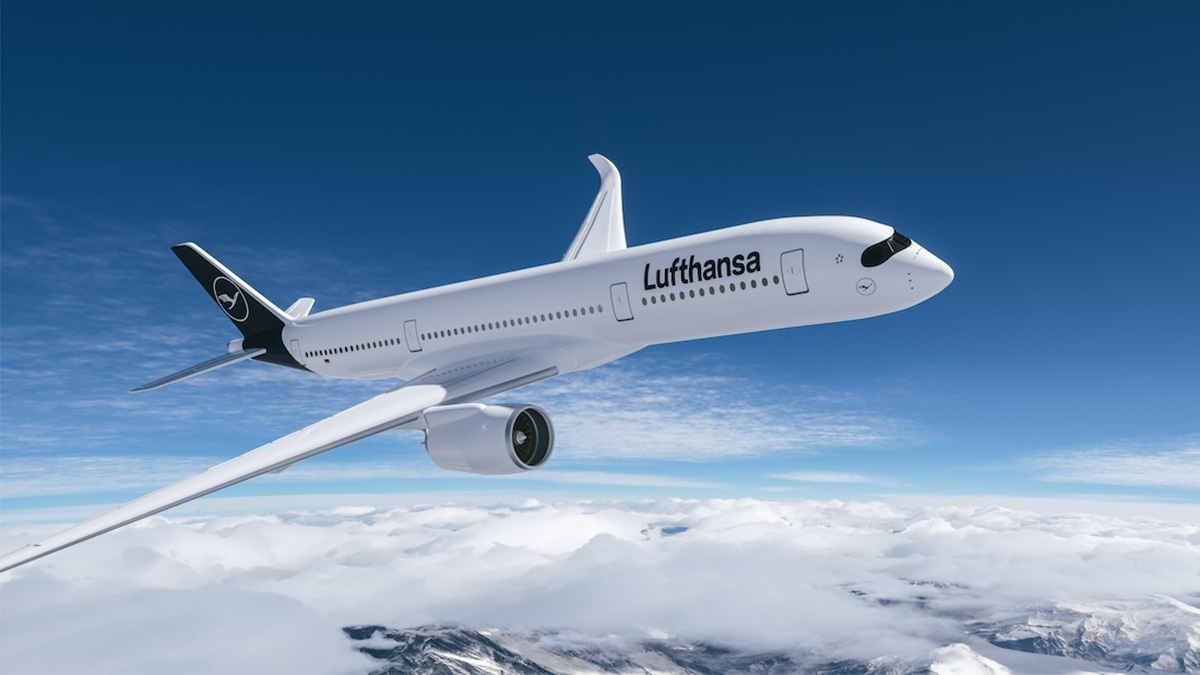Lufthansa Group revenue up 10 percent
- 4/29/2025
- 292 Day

Lufthansa Group improves adjusted EBIT in
the first quarter and confirms positive outlook for the full year.
The Lufthansa Group increased its revenue in the first
quarter of 2025 by ten percent compared to the previous year to 8.1 billion
euros (previous year: 7.4 billion euros). The company posted an operating loss
(adjusted EBIT) of 722 million euros; a significant improvement compared to the
previous year (previous year: -849 million euros).
The adjusted EBIT margin improved to -8.9 percent
(previous year: -11.5 percent). The Group result fell to -885 million euros
(previous year: -734 million euros).
Significantly improved punctuality and
operational stability
The Group's airlines expanded their capacity by almost
five percent compared with the first quarter of the previous year. Load factors
declined slightly to 78.7 percent. Thanks to moderate growth compared with
previous years, the operational stability and punctuality of the passenger
airlines improved significantly despite the rising number of flights. In
operational terms, the core brand Lufthansa had its best start to a year in ten
years. At the Frankfurt hub alone, 20,000 fewer hotel beds had to be booked for
guests in the first quarter than in the same period in 2024. Direct
compensation payments for flight delays and cancellations fell groupwide by 52
percent to EUR 47 million (previous year: EUR 98 million) due to significantly
improved operational stability.
Cost increases weigh on passenger airline
results
Revenue from passenger airlines rose by six percent in
the first quarter to 5.9 billion euros (previous year: 5.6 billion euros). The
operating result of the Lufthansa Group Passenger Airlines declined slightly
with an adjusted EBIT of -934 million euros compared to the previous year
(previous year: adjusted EBIT: -918 million euros).
Yields rose by 0.4 percent on average year-on-year
driven by consistently high demand. Unit revenues (RASK) were 2.7 percent
higher than in the previous year, partly due to significantly lower
compensation payments to passengers compared with the strike-hit first quarter
of the previous year.
Unit costs (CASK) excluding fuel and emissions
expenses rose by 3.1 percent compared with the same quarter last year due to
general cost increases. The main cost drivers were fee increases at system
partners such as air traffic control (+19 percent) and airports, as well as
high-cost inflation for maintenance services.
In addition, the seasonal shift of the usually strong
Easter travel season, which fell in the first quarter last year, also had an
impact on earnings development. Without this shift, the passenger airlines would
have significantly improved their earnings compared with the previous year.
Strong first quarter on the North Atlantic
Demand for air travel to and from North America
remained strong in the first quarter. The number of passengers rose by 7.1
percent compared with the previous year. Load factors were also higher than in
the previous year, with the seat load factor 0.7 percentage points above the
2024 figure. Average revenues for flights to and from North America also
developed positively in the first quarter. They rose by 6.7 percent compared
with the first three months of the previous year.
Currently, demand in the US sales region continues to
rise. In March, Lufthansa Group airlines carried around 25 percent more
passengers from the US to Europe than in the same month last year.
Lufthansa Technik and Lufthansa Cargo
continue positive trends
Demand for maintenance, overhaul and repair services
and other products offered by Lufthansa Technik remains high. Revenue rose by
18 percent compared with the previous year to 2.0 billion euros (previous year:
1.7 billion euros). Adjusted EBIT rose by 49 percent to a new record level of
161 million euros (previous year: 108 million euros [1]).
In the logistics segment, capacity increased by seven
percent due to the expansion of freight capacity in passenger aircraft because
of a further increase in traffic volume and the addition of another Boeing 777
freighter, while sales also increased by nine percent. Average revenues rose by
around 12 percent compared with the same quarter last year. Unit costs were
reduced slightly thanks to successful cost management. As a result, Lufthansa
Cargo generated a significantly improved adjusted EBIT of 62 million euros in
the first quarter (previous year: -22 million euros).
Positive adjusted free cash flow further
reduces net debt
Operating cash flow rose to around 1.8 billion euros
in the first quarter (previous year: 1.3 billion euros). The change is mainly
due to improved working capital in relation to a seasonal increase in ticket sales.
Including a decline in net capital expenditure, Adjusted free cash flow
improved to 835 million euros (previous year: 305 million euros).
The Group further strengthened its balance sheet in
the first quarter of 2025. Net debt decreased to 5.3 billion euros compared
with the end of 2024 (December 31, 2024: 5.7 billion euros). Net pension
obligations fell to 2.2 billion euros due to interest rates (December 31, 2024:
2.6 billion euros). At the end of March 2025, the company had total liquidity
of 11.4 billion euros (December 31, 2024: 11.0 billion euros).
Till Streichert, Chief Financial Officer of Deutsche
Lufthansa AG: “We are in a period of high volatility. In this environment, it
is good news that we are making progress as planned on issues within our
control, such as our turnaround program at Lufthansa Airlines. At the same
time, we are keeping an eye on market risks. We are well prepared to respond
should these materialize. However, it is not just about risks, but also about
positive factors that are already supporting our earnings performance today,
such as favorable fuel prices and exchange rates. These can help to offset the
financial effects of any changes in demand. Overall, we therefore remain
confident that we will be able to achieve a full-year result significantly
above the previous year's level.”
Outlook
Global demand for air travel remains strong. The
Lufthansa Group therefore expects another strong summer travel season overall.
The most popular vacation destinations are
Mediterranean destinations, especially Spain, Italy, and Greece. Demand for
long-haul travel also remains steady. This also applies to flights to and from
North America, where ticket sales for the second quarter are up on the previous
year.
Nevertheless, macroeconomic uncertainties,
particularly the trade tensions between the US, the EU and other regions, are
making it difficult to forecast the coming quarters accurately. Visibility for
the third quarter remains limited.
The Lufthansa Group has set up a task force to closely
monitor current developments and, if necessary, respond quickly and flexibly to
any weakening in demand, for example by adjusting capacity. The company also
believes that potential market changes offer opportunities. For example, a
further decline in kerosene prices could counteract temporary fluctuations in
demand.
Despite the uncertainties, the Lufthansa Group is
confirming its forecast for the full year with an operating result (adjusted
EBIT) significantly above the previous year (1,645 million euros).








